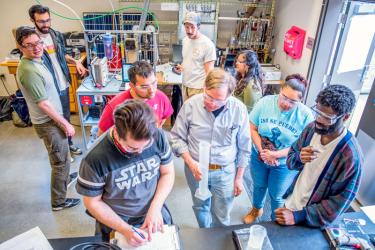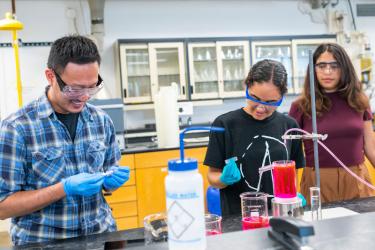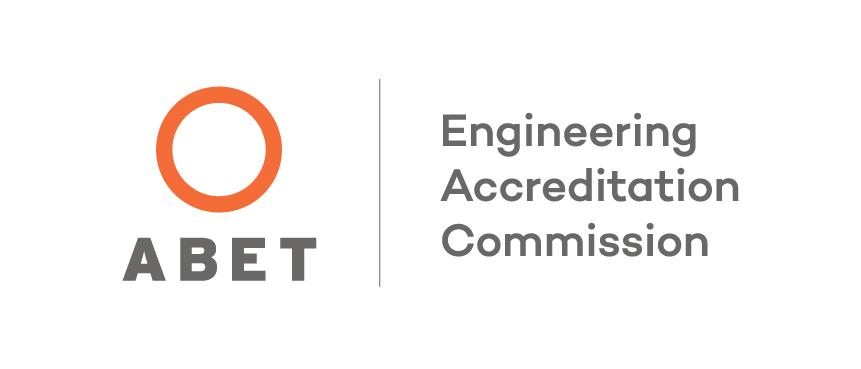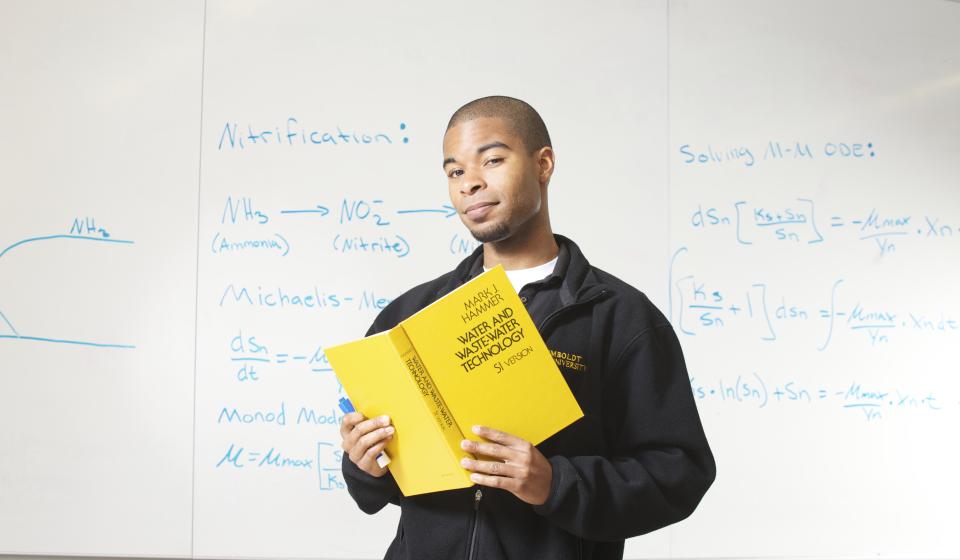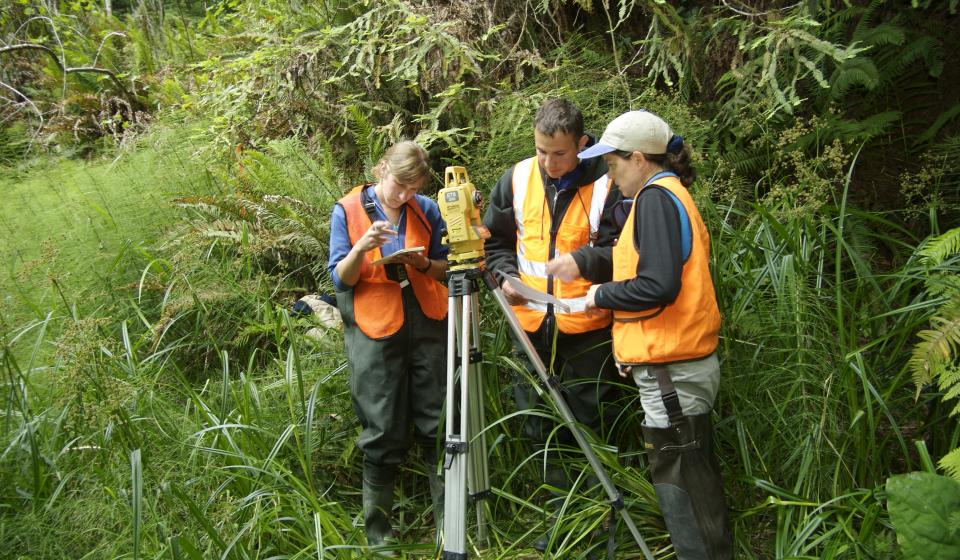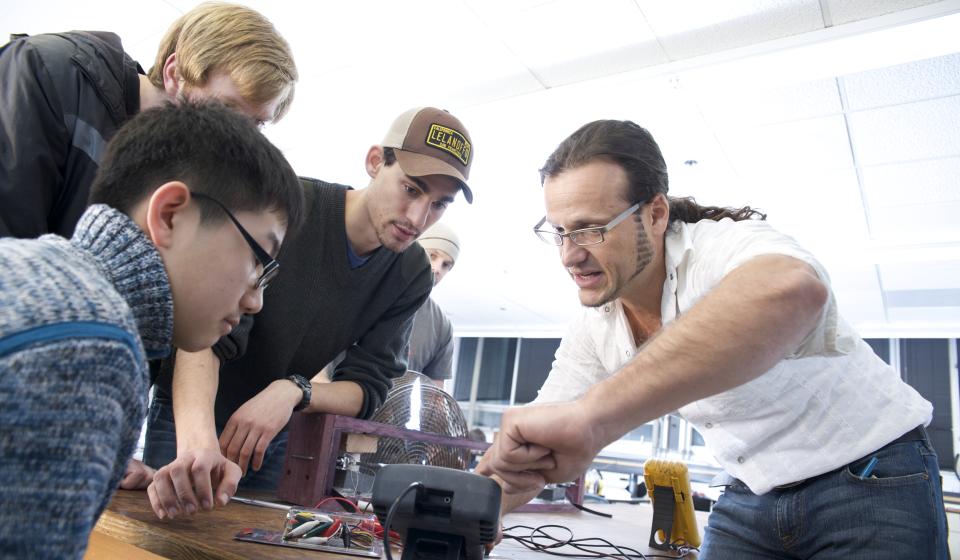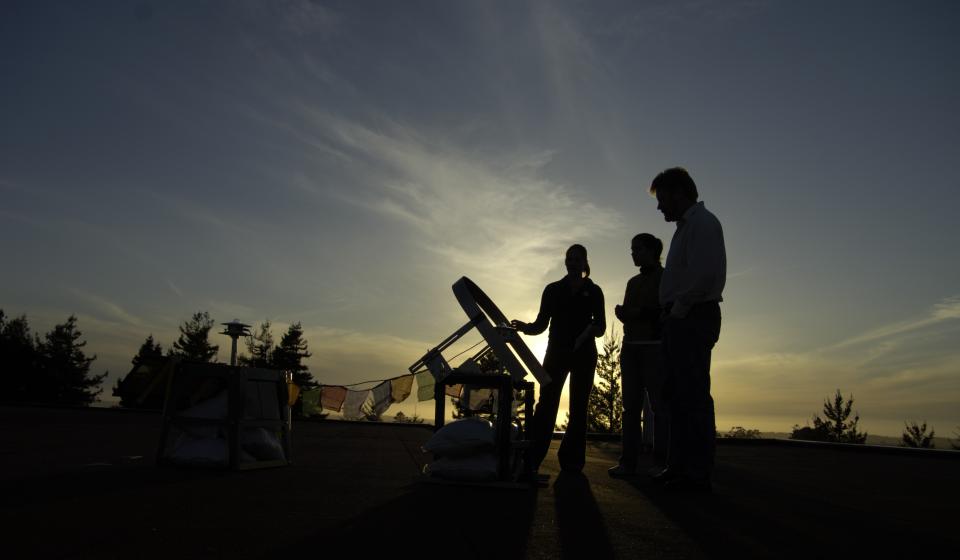Success in the Program
- Class Attendance
- Homework and Coursework
- Computers and Calculators
- Test Taking
- Study Groups
- Writing Papers
- General Stuff
Class Attendance
Students should do their best to attend all class meetings and pay attention. Often, the first time that students have an opportunity to learn the material is when its presented in class. One of the best ways for you to show an instructor that you aren't invested in your success in their course is to not attend class meetings. Not only should students do your best to attend all class meetings, you should also make efforts to actively participate in class. Active participation means more focus, less distraction and a better chance of learning and keeping up with the course material. Stay with it and think about applications for the material at the same time. Where does this stuff fit in with what's already been learned? Remember, if you're cataloging this information while it is being presented, you'll be able to recall it better later.
Homework and Coursework
To succeed in Engineering, you should do your best to complete all of your homework and coursework, and keep all of your returned assignments. Don't be fooled into the thinking that just because something is only worth 10 to 20 % of a course grade that it doesn't matter, that it's not necessary to learn the material, or that you can let part of it slide. Some teachers dont even collect homework or give grades based on homework, but never-the-less, homework and other assignments are ALL important, and here's why:
- Instructors have simple methods for determining if studentshave learned their material - testing students on the material presented in class and required in homework. Instructors will ask test questions regarding the same material that's presenting in homework assignments.
- Homework improves students' problem solving skills. Students will generally not be asked to remember facts, figures, and names, but instead to solve complex problems involving analytical thought processes. Mathematical analysis problems can be solved best by practicing on homework and then practicing again prior to tests.
Computers and Calculators
Students should do their best to embrace technology - especially calculators and computers or tablets!
Having a laptop or tablet to complete work in any course can be very useful to students. Every instructor at Cal Poly Humboldt is offered an online portal for their courses (through Canvas), and many take advantage of this. Your courses may require you to complete homework, take quizzes and exams, participate in forums/discussions, check grades and access course materials online, so having access to a personal device is important for many. Engineering graduates recommend doing your research and buying the best that you can afford as opposed to shopping bargains, as a better functioning and long-lasting device will help to streamline productivity and prevent you from having to buy a new device partway through your education. If you cannot afford to invest in a laptop or tablet, though, the Humboldt library and many departments on campus offer access to public computer labs. School of Engineering Faculty recommend using PC laptops as opposed to a Mac laptop, due to compabitability issues with commonly used engineering softwares and Macbooks. Tablets are also highly encouraged, they help students excel in note taking, organization and productivity.
There are several different kinds of calculators for Engineering majors to choose from, and many instructors will specify which of these options they prefer and why. If you're unsure of which to buy, asking for advice from more senior students or from instructors is the best route to making a decision. Once you purchase a calculator, treat it well! Engineers spend their entire careers doing math, so it'll be a long-term investment. It is also recommended to buy a calculator that is approved for the FE exam, the first step to becomming a Professional Engineer, linked here is a list of FE approved calculators and their pros and cons.
Test Taking
Preparing for tests should mean reviewing work you generally know how to do. If you are studying something for the first time and the test is tomorrow, then it's going to be a tough exam to take. In order to avoid cramming and poor exam scores, do your best to stay up-to-date with course work. Here is the strategy one of our successful graduates used to review for exams:
- Review notes, homework and any course texts for key concepts.
- Make up review sheets by chapter or topic. These can be hand written on the back of recycled paper or typed out, and should come out to one or two pages per chapter. For example: when reviewing for a chemistry exam that will cover five chapters, using this method should produce about seven or eight pages of mathematical techniques and/or chemical property information.
- Once the review is completed, practice problems. Rarely do teachers put problems on tests from material or concepts not covered in class or on homework. Work problems from the chapters that your instructors have assigned as homework, rework old homework assignments, class exercises, and solve example problems provided in the course texts.
- Just prior to the exam, go back over your review sheets and continue to review until the instructor or exam proctor asks you to put your things away and prepare for the exam.
- After the exam, save your notes and review sheets for the rest of the semester (at least) and use them on the final exam.
Study Groups
We cannot over emphasize the importance of starting or joining a study group for your courses - no other advice we can give our students is more important than this. Over the course of the past year, ERE's Society for Hispanic Professional Engineers (SHPE) has coordinated with Humboldt's Learning Center to provide weekly group tutoring sessions for all engineering majors where students can work on assignments for any of their courses. To find out when the study group meets, contact the Learning Center or the School of Engineering Department Chair at the beginning of each semester!
Writing Papers
Many engineering students don't consider themselves to be great when it comes to technical writing, but writing is a process, and careful practice will help you to do the best that you can.
First, you must prepare to write a paper just like you prepare for anything else. This means reading and rereading the assignment parameters provided by the instructor, making notes to yourself about what needs to be done, and then digging into some research. There's a lot of research that can be completed online, but Humboldt also has many resources in the library. If you are new here, start by talking to the librarian at the research help desk. They will have lots of information about how to conduct research and will be able to advise you on where to start and how to progress from there. Something to keep in mind as you compile your research is that you'll generally need just a few good sources, as opposed to many unhelpful sources.
After you have collected information, read it and make notes! To save time, many students recommend working directly on the computer with your collection of information. This means typing out your research notes to begin with instead of hand-writing them and typing them out later. Make sure to keep track of your reference information as well. Today, there are several websites that will create citations for you and save them in a works cited form for you to use in your bibliography later. Many of our students recommend EasyBib, CitationMachine, and BibMe. Remember to save your work often and make multiple copies! In the age of cloud storage, it's relatively easy to back up your work using free services like Google Drive, iCloud, and Dropbox.
When you're ready to write the paper itself, we recommend doing a "brain dump" before attempting to create the finished product. This strategy involves typing out your ideas as fast as you can with the intention of just getting everything out of your brain and onto a document where you can analyze and organize. Don't worry about format, grammar, or spelling at this point - it's only about getting down the ideas that you want to include in your paper. Later, you can create your paper's outline using the ideas in your brain dump, then go back to it and add structure, move things around, rephrase, and flesh out the ideas.
If a paper assignment has you feeling overwhelmed, try doing your writing in stages, or "chunks." One of our graduates has referred to this method as "chunking it out." They would approach the assignment by writing out "chunks" (250 words is a nice approximation), then read over it once, make a few changes, save the work and do something else for a bit. This way, you'll eventually finish your paper after getting many bits and pieces completed without feeling like you need to cram it all into one writing session.
At various stages, make sure to have someone who you trust review your work and feed back the hard truth regarding its quality. When touching up your paper, though, always remember that editing (feedback on grammar, format, and spelling errors) should be the LAST step. Ask for revision advice (feedback on thesis structure and support, organization and clarity) first! It's important to have a solid base before getting nitpicky about cosmetics.
General Stuff
- Buy, read and keep your textbooks if you're able.
- Get a copy of a "Fundamentals of Engineering" test review book. The F.E. exam (also called E.I.T) is and eight-hour-long national exam that engineering students should take near the end of your college career. Obtaining this booklet will help you in two ways: Number one, this book is like Cliff Notes for literature students. It contains many of the equations and solution processes you will encounter in your years studying engineering. Number two, having this book will help you become familiar with exam structure and content prior to taking the exam, something very valuable for when you sit down to take it.
- See your instructors. Here at Humboldt, the course instructors are much more willing to spend time with students than at larger universities, and all of our instructors are committed to and invested in student success.
How to Apply
So environmental resources engineering sounds interesting, but you are still not sure if Humboldt is right for you? Explore what Humboldt has to offer to both freshman and transfer students.
Paperwork
For paperwork and forms such as major and minor contracts, course planning guides, semester schedules, course rotations, office hours and more, visit our forms page!




